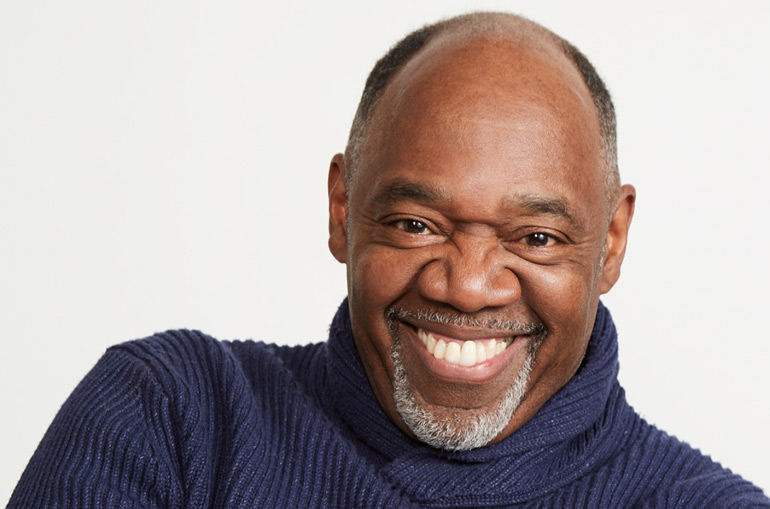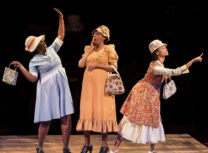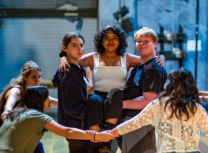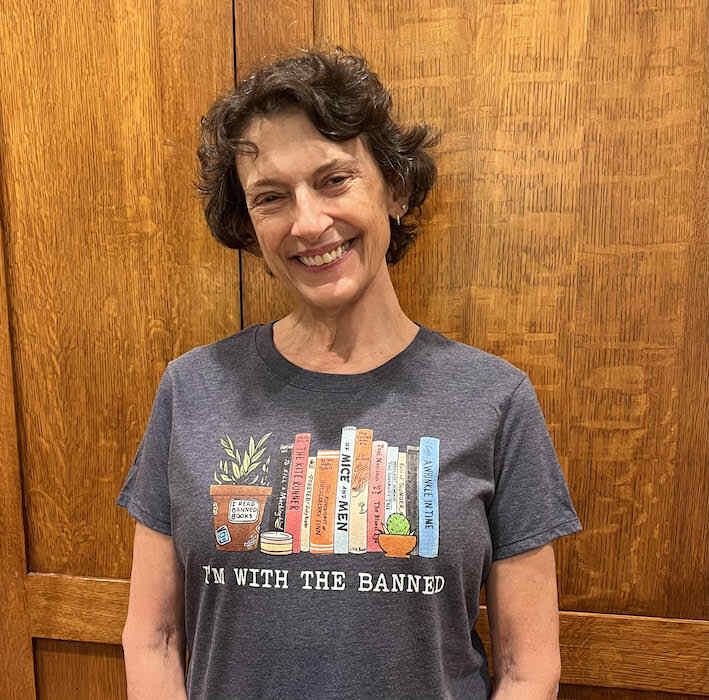Gregg T. Daniel Q&A: Black History Month

By A Noise Within
February 23, 2022
You may know Gregg T. Daniel (he/him) from his work as a director at ANW – most recently for August Wilson’s Seven Guitars from the fall. Now, you can learn about his breadth of artistry as an actor and director from working all over the country in our Q&A!
How did you get started on your artistic journey?
My father was a Caribbean immigrant, and he brought his love of classical work with him. We had a full volume of Shakespeare in our home. Because my father’s island was once a British colony, they adopted the culture of the anglophones. I would read and look at them. I had no idea what they meant, but the language seemed so exotic and so wonderfully strange. Then I saw my first classical production, and that was when I knew, looking at the people on stage, the costumes, lights, setting, I just couldn’t imagine anything more with my life. I was lucky to grow up in New York. I was around this hotbed of activity, where theater reigns supreme. I went to NYU School of the Arts. The New York Shakespeare Festival was just around the corner, and the Negro Ensemble Company was two blocks from the school. I had this wealth of theatre exposure. The language of Shakespeare was my first love, and by the time I heard it spoken by an actor, it seemed so powerful. I gravitated toward that, and I made it my life. I started directing well into my career. I did regional theatre for twelve years after I graduated. I would ask a lot of questions to directors that had nothing to do with my role, and I had kind directors who let me ask those questions and watch. That’s when my love of directing came alive. Something about the lights, sounds, projections, and costumes just really appealed to me. I’ve been directing for twenty years now.
How did you get to where you are now? What challenges did you face on the way?
The arts were not common in my family. My mother and father encouraged me to do what I wanted to do, even though they were scared. It didn’t quite translate how you go from one job to another in the arts, but they never discouraged me. They didn’t ask about traditional jobs, like do you want to be a doctor or lawyer. By the time I was accepted into NYU, they knew I was fully committed to and mesmerized by acting. After I graduated, I spent 12 years doing regional theatre. I was trying to find my method of working. When you’re in conservatory, you do what you’re told, but now I had to find my process as an actor. The 12 years of regional theatre allowed me to find what my process was and also to explore roles I probably would not have gotten in New York, which tends to be more commercial. I was fascinated by California and this whole Los Angeles thing. I had agents with a sister agency in Los Angeles. By that time a lot of playwrights, actors, and directors were going to Los Angeles because you could make money there. I met the West Coast office of the agency, and we hit it off really well. So, I said you know what, I’m gonna try Los Angeles. Television and film were good; it helped me do theatre because it paid well. I was steeping myself in training and then doing all kinds and genres of theatre in regional theatre. That gave my craft such versatility and background of colors that I could use. I teach at USC School of Dramatic Arts, and I tell my students it’s not about graduating and getting one film or TV show. The challenge is: are you still doing the work you want to do after 30 or 40 years? Are you still making the kind of work you want to? Are you living as a professional actor and director?
How did you find and end up at ANW?
They wanted to do A Raisin in the Sun, and I always wanted to direct that. I’d met Geoff and Julia once or twice, I saw a few productions, and I knew they were a well-respected classical theatre company. I took a meeting with them, and we talked about our love of Lorraine Hansberry and the themes of the play. I wanted to ensure that they were committed to do more than hiring a Black director for one Black play. I wanted to be thought of as a director and as actor that can do any production at ANW. Geoff and Julia very much wanted to be a part on it. Raisin did very well, and they also wanted to do August Wilson. By that time, I’d only directed Fences, so we talked about Gem of the Ocean, which is the first of the cycle. Gem of the Ocean went extremely well, and we’ve decided to continue it. ANW is very sophisticated. They know plays, good acting, good writing. I wanted to expose them to August Wilson because I consider Wilson to be one of the greatest American playwrights. The fact that they wanted to expose their audience to this writer, to these worlds they probably would not have known, really excited me. That’s when we launched with Gem of the Ocean. We wanted to do the American Century Cycle chronologically, but we couldn’t get the rights in order. But the estate is kind enough to keep giving us rights. I could never get enough of August Wilson. I learn so much as an actor and a director when I direct an August Wilson play. People come in and they’re off book! I’d never ask that of an actor. I didn’t know of one actor who came in to audition that wasn’t off book for Wilson. They had just absorbed it all for their own instrument. That’s really impressive. That’s how you know they really want to do that play.
How does your culture, family background, and history influence your work?
My father was Caribbean, and so he came as an immigrant to this country. It’s the story of people who are willing to work hard who just want a fair share and want a better life for their children. That really appeals to me. The preoccupation of the American drama is the family. The fact that by example I saw how hard my father worked to make sure my brother and I had an education, and we were able to go places he could never imagine. He sounded different than the other fathers in the neighborhood, and he ate different foods. Growing up I was annoyed, but then you realized it was a strength. I grew up with the American and Caribbean cultures, and that was wonderful. Is that not the American story? Is that not what every parent wants? Now I struggle to give my own daughter what we didn’t have and to let her realize who she is. Once I had a family, I knew as an actor one of my litmus tests is that I would never do anything my family would be ashamed of seeing. The roles that were uplifting somehow, the roles that were intelligent, that’s what I wanted my daughter to see.
Out of all your accomplishments in the arts, what are you most proud of?
I have a reputation as an actor’s director, and I’m really proud of that. The fact that actors and designers trust me. That artistic directors trust me and bring me back. The way I work with people. One artistic director I talked to said, “It’s something you have that you bring out in actors.” I’m able to speak an actor’s language and be sensitive to how different actors work. I am telling the stories of these great playwrights in ways that touch these audiences. Being able to collaborate with so many different artists and get another chance to do it, I’m really proud of that. As a director, I don’t have to look for work; offers have been coming my way for a while now. I’m a part of SDC and I’m very proud of that. I’m told I crate a safe place for actors to take risks in, that I am going to protect them.
Who is your favorite Black author/playwright/artist? What is your favorite work of theirs?
James Baldwin is way up there. I started reading Baldwin in high school. James Baldwin has got to be my favorite novelist. And then one of the later ones, Toni Morrison. The worlds she creates, how she delves into the African Diaspora, the magical realism. Those are mighty writers for me. And of course, August Wilson. As an actor, one of the biggest influences in my life is Sidney Poitier. When I was a child watching Sidney Portier on television, he was this tall dark man who was so dignified, even when playing a villain. He exuded this kind of confidence, and it gave me the license and ability to say maybe I could do that. I have to give kudos to Poitier.
What have you been up to recently?
I’m working on a new play: In the Upper Room at the Denver Center. It has been great to be getting so much support for a new play. I’m just honored they asked me to put up this play. I have a fantastic cast. We have protocols and procedures in place, and we’re still marching on to do theatre. That’s a very noble thing. We need theatre now more than ever to define what we’re going through. To define a global pandemic and racial injustice, with Black Lives Matter – that’s what it’s all about. Theatre gives us a narrative, a way of looking through a lens we may not have looked at before. I’m proud to be an artist that participates in American culture, the exposure of people to other ethnicities and cultures and identities.








